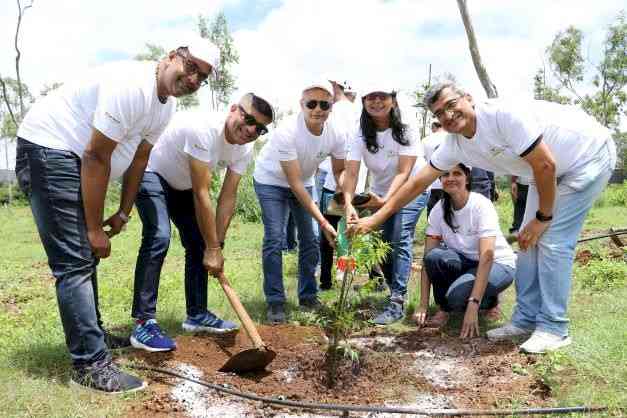PNB MetLife celebrates 21st anniversary with tree planting drive
PNB MetLife, one of India’s leading life insurers, celebrated its 21st anniversary with a tree planting drive at Dive Village, Pune, contributing to a sustainable ecosystem in the years to come.

Pune, August 6, 2022: PNB MetLife, one of India’s leading life insurers, celebrated its 21st anniversary with a tree planting drive at Dive Village, Pune, contributing to a sustainable ecosystem in the years to come.
PNB MetLife leaders, employees, distributors and partners volunteered to plant the saplings in the ecologically important area, supporting the local community in efforts to nurture trees and green degraded land.
Shishir Agarwal, CHRO, PNB MetLife said “Our growth journey of 21 years is a testament to our dedication to serve and delight our customers with best-in-class products and services. At PNB Metlife, we believe in taking proactive steps to address the impact of environmental degradation, and this small step is aligned to our company’s purpose of helping our people, customers and communities build a more confident future. By celebrating our anniversary through this plantation drive, we aim to contribute towards building a more sustainable world.”
The plantation drive was conducted under ‘Glow Green’, a PNB MetLife initiative that is an integral part of the insurer’s commitment to creating sustainable community-led change. Under this initiative, PNB MetLife aims to plant and nurture 40,000 trees across four locations in Uttrakhand, Delhi NCR, Karnataka and Pune. These saplings will increase around 50+ acres of green cover in India and within their entire lifespan will help produce around 35,000+ tons of oxygen and capture around 20,000+ tons of carbon dioxide.
Greening these areas also benefit surrounding communities and villages through improved air quality, increased biodiversity in the form of birds, insects and wildlife, and a recharged ground water table. Most importantly, hiring people from the local communities to plant the saplings and monitor them helps create rural employment opportunities.



 City Air News
City Air News 










